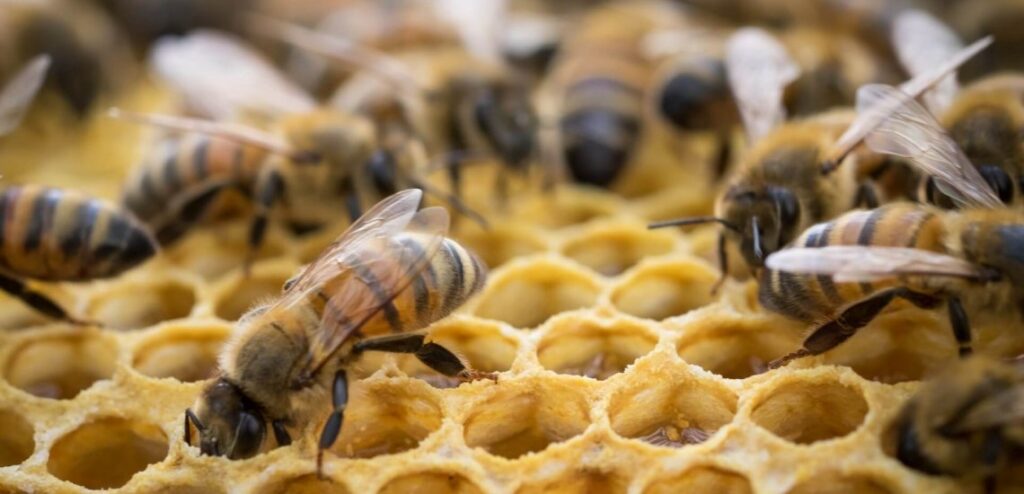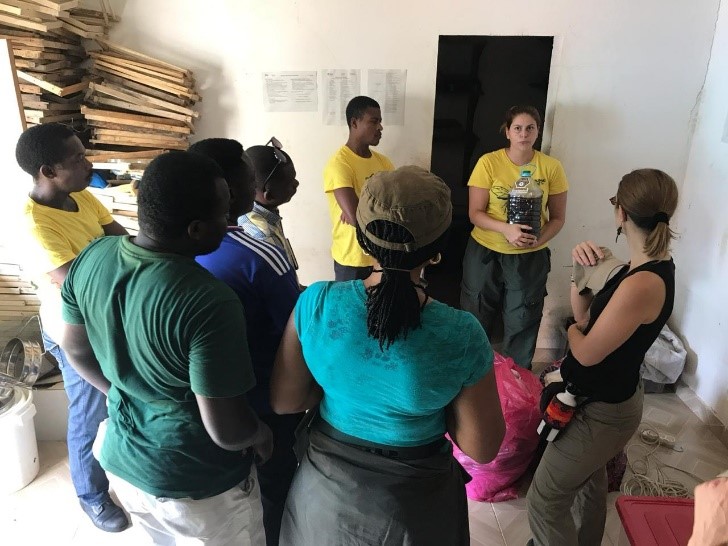Forest conservation project converts bee-burners to beekeepers on Príncipe Island

On the small island of Príncipe in the Gulf of Guinea, a community beekeeping project is empowering communities to obtain honey in a way that doesn't risk their lives. This initiative is already restoring forests and enriching livelihoods.
By Francois Kamano & Mariana Carvalho
This article is a CEPF project spotlight
Traditionally, honey collectors on Principe Island extracted honey from wild colonies found in the forest by burning their nests. Not only does this method kill most of the bees and risk starting forest fires, but it is also dangerous for the honey collectors themselves, who must scale tall trees with minimal safety equipment.
That’s why CEPF grantee Fauna & Flora International, in partnership with local non-profit organization Fundação Principe Trust (FPT), is helping to support COOPAPIP, the only community beekeeping organization on the Island, located in the community of Ponta do Sol. The CEPF-funded project, which began in July 2017, expands on a successful pilot project by FPT that built apiaries for the safe production of honey. The project uses agroforestry – where trees are grown among crops – to restore degraded areas, guarantee bee pasture and contribute to islanders’ food security by improving horticultural yields.
“This project has made our life easier. Previously, we used to burn bees for honey, and now we no longer burn them,” said participant Jose Antonio Mendes. “We feel safe in our work thanks to the equipment provided to us by the project.”

The project has contributed extensively to the scaling up of commercial beekeeping on the island, though the community cooperative cannot yet meet the demand of visiting international buyers.
“We are already selling the honey to the general community members, and now we are also selling to the tourists,” said Manuel Delgado, the President of the nascent bee-keeping cooperative known as COOPAPIP.
There is strong hope that other beekeepers on the island still using the traditional method will soon transition to sustainable beekeeping with the help of COOPAPIP.
CEPF is a joint initiative of l’Agence Française de Développement, Conservation International, the European Union, the Global Environment Facility, the Government of Japan, and the World Bank.


